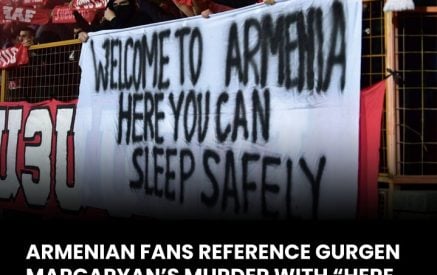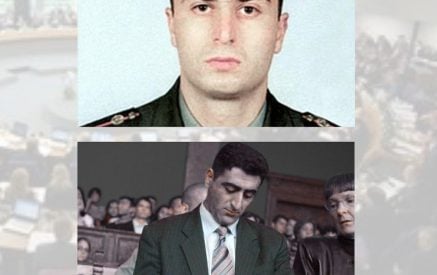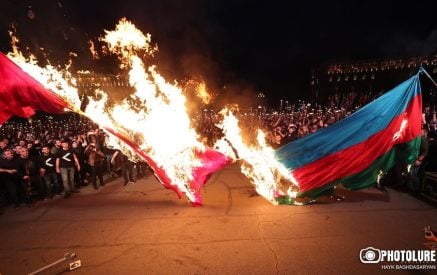Revelation by a European figure
-What do you think, is is possible for Armenia to re-normalize its relations with Hungary? I have an assignment, and I would like to discuss with you.
– Can I know what assignment you have?
– I am authorized to ask and learn the attitude of the public, and why not, the government.
Read also
– I cannot say anything on behalf of the government. But, I can say on behalf of all of us that, in our opinion, the president of the country made a very right decision with regard to Safarov’s case. And as for the normalization of relations, then, probably, yes. However, we need to understand what is the price of the issue, what are the conditions, and what do you offer? Is the Hungarian side officially ready to apologize for its deeds? Especially, what happened later, in Baku…?
This dialogue took place a few days ago between the leader of Democratic Party of Armenia Aram Sargsyan and a “very popular” European political figure, whose name Aram Sargsyan refused to divulge. The dialogue was held in Berlin, May 14-16, under the conferences of “Europe: Lost in Translation”. Most interestingly, however, was the end the conversation, “They sold,” said Aram Sargsyan, meaning that Hungary sold Ramil Safarov to Azerbaijan, “Mr. laughed and said, you know what, it turned out that they were deceived because Azerbaijan did not give the promised three billion. Hence, consider this fact and note that there may be an opportunity to begin negotiations with the Hungarian side.”
Aram Sargsyan views this conversation very positive, moreover, he believes that “there is a good topic here,” and Armenia in fact can somehow instigate the issue associated Safarov. “This official was very well aware of what was going on in Armenia in those days. He said that Hungarians are very offended that their flag is burned,” told our interlocutor, adding that he also has said that burning of the Hungarian flag was absolutely normal, given that Safarov’s ferocity and this commercial transaction.
Generally, the discussion that was organized by joint efforts of “Dialogue of Civilizations” world public forum and the Russian-German Forum, and was attended by delegates from about 20 countries, Aram Sargsyan considers it quite interesting. “Interestingly, the German side did not hesitate and under these conditions when Europe has a emphasized negative attitude towards Russia and sanctions are applied, it organized and conducted the event,” said the DPA leader, adding that Germany has thus proved that the right way is the normalization of issues through dialogue. “I must say that the Europeans were presenting their disagreements in their positions with regard to some Ukrainian events, not getting into conflict. It was strange and unexpected to me that the speeches by very popular German parliamentarians and political scientists contained such thoughts that Europe should come out from the United States’ dictate. They were talking that the idea about having a whole Eurasia from Lisbon to Vladivostok is very interesting. Although it was clearly mentioned that they do not agree with tough steps exercised by Russia”.
Chairman of the Board of Russian-German Forum, former Prime Minister of Brandenburg Matthias Platzeck wrapped up his speech by saying that now it is necessary to re-agree on common rules of the game, “We are committed to be interested in one another, and recognize each other.” During this, as well as the discussion on “Balkan Dialogues” organized in Belgrade by the RF State Duma, Gorchakov Foundation, the Serbian Academy of Arts and Sciences and the Parliament of the Republic of Serbia, the DPA leader also spoke about the recognition of the Armenian Genocide and Nagorno-Karabakh conflict settlement. For the first one, noting that failing to recognize and condemning resulted in Holocaust. As for the Nagorno-Karabakh conflict, the DPA leader has addressed a question to the European statesmen about where the red line is after which the Europe will not exceed the margin with regard to application of double standards, noting that Europe cope with the bombing of Yugoslavia, and immediately recognized Kosovo. The question, however, has remained unanswered.
NELLY GRIGORYAN






















































